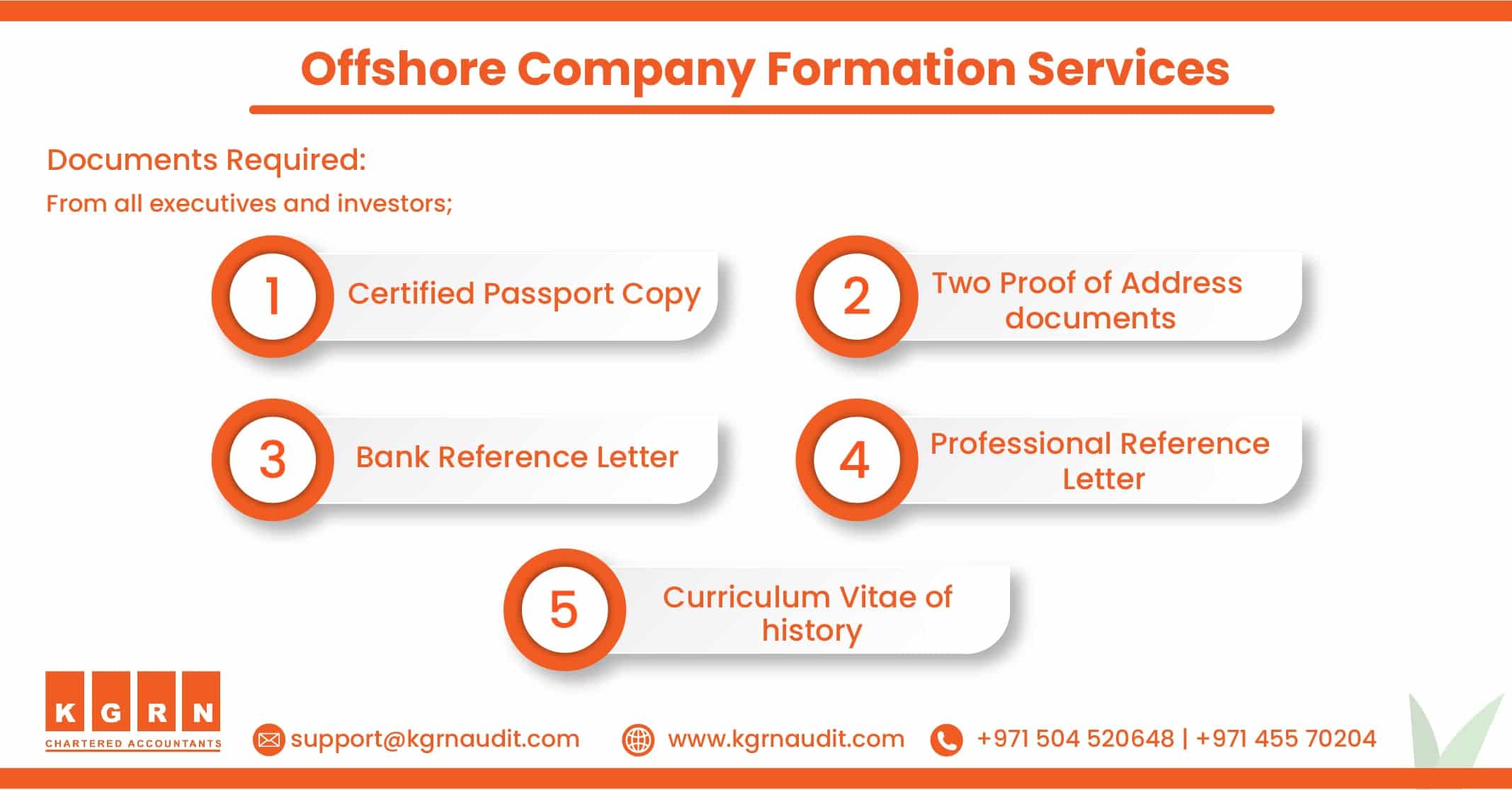Protect Your Assets with Offshore Company Formation Plans
Protect Your Assets with Offshore Company Formation Plans
Blog Article
Navigating the Globe of International Service: Insights on Offshore Company Formation
Offshore Company Formation provides a strategic method for worldwide service procedures. It offers noteworthy benefits, such as tax obligation optimization and improved privacy. Nevertheless, the process is not without its challenges. Comprehending the intricacies of various territories and governing needs is essential. As companies consider these alternatives, the actions entailed can considerably influence their lasting success. What are the vital aspects that can result in effective overseas administration?
Comprehending Offshore Firms: Interpretation and Objective
Offshore companies have actually come to be a centerpiece in worldwide organization discussions as a result of their one-of-a-kind legal and financial structures. These entities are established in territories outside of the owner's nation of residence, commonly with desirable regulative atmospheres. Generally, offshore firms offer numerous objectives, such as property security, tax optimization, and boosted privacy. They can operate in multiple sectors including trade, money, and technology, supplying flexibility for global operations.The specifying feature of an offshore Company is its ability to carry out service worldwide while profiting from decreased tax responsibilities and regulatory problems. This framework interest entrepreneurs and investors seeking to diversify their profiles and handle dangers successfully. Furthermore, many overseas jurisdictions use rewards to draw in foreign investment, leading to an increase in the Formation of these companies. Recognizing the definition and objective of offshore business is crucial for steering via the complexities of worldwide business and capital circulation.
Key Advantages of Offshore Company Formation
The Formation of an overseas Company provides numerous engaging advantages that draw in investors and business owners alike. Among the main benefits is tax obligation optimization; several territories give beneficial tax rates or exceptions, allowing organizations to maximize profits. Furthermore, overseas business typically delight in better confidentiality, as numerous jurisdictions have rigorous privacy regulations shielding the identifications of Company proprietors and shareholders.Another significant benefit is property security. Offshore entities can protect properties from political instability and financial recessions in the owner's home nation. These firms can help with global profession, offering simple accessibility to global markets and streamlining cross-border transactions.The adaptability in corporate structure likewise allures to organization proprietors, as offshore firms can be customized to meet particular operational demands. Generally, the critical Formation of an overseas Company can bring about improved financial protection, operational performance, and a robust international presence.

Usual Obstacles in Developing Offshore Entities
Developing overseas entities provides several obstacles that organizations should navigate. Secret concerns consist of regulative compliance, which can differ significantly throughout jurisdictions, and the effect of social differences on operations. Furthermore, companies need to think about the expenses and dangers connected with maintaining an offshore existence, which can affect overall viability.
Regulatory Compliance Issues
Steering governing compliance concerns positions substantial challenges for organizations when they seek to develop offshore entities. Each territory has its own set of regulations and guidelines, which can differ extensively and might be difficult to browse. Business often deal with obstacles pertaining to tax conformity, anti-money laundering guidelines, and coverage requirements. Furthermore, adjustments in worldwide tax regulations can create unpredictability, making it crucial for companies to stay updated on conformity obligations. Failure to abide by these policies can lead to severe fines, consisting of fines and reputational damage. As a result, involving and recognizing the legal framework with regional experts is vital for successful offshore operations, making sure that companies can operate within the boundaries of the regulation while enhancing their worldwide technique.
Cultural Distinctions Impact

Expense Factors To Consider and Threats
Steering with the financial landscape of overseas entity Formation presents different expense considerations and inherent risks. Preliminary arrangement expenses often consist of lawful fees, registration expenses, and compliance costs, which can collect considerably. In addition, recurring maintenance expenses such as yearly charges and accounting services have to be factored in. Rising and fall governing environments in different jurisdictions present threats, possibly leading to legal problems or unanticipated expenses. Organizations might also experience obstacles connected to taxes, banking, and reputational issues, which can impact earnings and functional performance. Possible entrepreneurs should perform comprehensive due persistance and economic forecasting to mitigate these dangers and ensure sustainable development. Recognizing these expense considerations is vital for effective overseas business ventures.
Actions to Establish Up an Offshore Company
Developing an offshore Company includes a number of important steps that require careful factor to consider. Key variables consist of ensuring and choosing the ideal jurisdiction conformity with local regulations, along with collecting required paperwork. Understanding these components is important for an effective offshore company arrangement.
Choosing the Right Jurisdiction
Choosing the right jurisdiction is critical for anyone aiming to establish an overseas Company, as it can considerably affect business's legal responsibilities, tax responsibilities, and functional ease. Different variables ought to be considered, including the political stability, regulative environment, and tax obligation incentives offered by potential territories. Popular options usually include countries with beneficial tax programs, such as the British Virgin Islands or Cayman Islands, as a result of their reduced or absolutely no tax obligation prices. Additionally, the ease of doing company and the online reputation of the territory can affect investor confidence and market gain access to. Ultimately, an educated decision based upon thorough study will assure the offshore Company is placed for long-lasting success and conformity with worldwide standards.
Needed Documentation and Conformity
When establishing an offshore Company, recognizing the needed documentation and conformity demands is vital to ensure a smooth procedure. Secret files typically include a certificate of unification, a memorandum and short articles of organization, and proof of site link identification for shareholders and supervisors. Some territories may need extra details, such as service strategies or bank references. Conformity with local legislations is essential, which typically entails designating a signed up representative and maintaining a licensed office. Routine reporting and adherence to tax obligation responsibilities need to additionally be taken into consideration. Failure to adhere to these needs can result in charges and even dissolution of the Company. Detailed preparation and appointment with lawful professionals can aid browse these intricacies successfully.
Choosing the Right Jurisdiction for Your Offshore Company
How can one figure out the most ideal territory for an offshore Company? Selecting the ideal jurisdiction calls for cautious consideration of several variables. First, the legal and tax obligation setting plays an essential function; jurisdictions with beneficial tax regimes may improve organization profitability. Additionally, the political stability and economic environment of a place can affect long-term service viability.Another essential aspect is the availability of monetary solutions and banking facilities, which assist in smooth procedures. Possible company owner must also think about the simplicity of working, consisting of the rate of enrollment and the clarity of regulations.Furthermore, language barriers and social distinctions can influence procedures; consequently, lining up with a jurisdiction that lines up with organization goals and personal comfort is important. Ultimately, complete study and specialist suggestions can guide business owners in making an educated choice that lines up with their strategic goals.
Conformity and Regulative Considerations

Finest Practices for Taking Care Of an Offshore Organization
Handling an offshore service requires calculated this content planning and thorough execution to enhance efficiency and mitigate threats. Establishing a robust compliance structure is vital to navigate varying regulations across territories. Routine audits and danger evaluations aid recognize prospective vulnerabilities.Moreover, leveraging regional experience with collaborations with local specialists can enhance operational efficiency and cultural understanding. Making use of modern technology, such as cloud-based management systems, simplifies interaction and data monitoring, enabling better decision-making. Additionally, keeping clear financial documents and making certain prompt tax filings are essential to support the Company's stability. Spending in team training and development promotes a knowledgeable labor force, advertising innovation and adaptability.Finally, developing clear performance metrics and key performance indications (KPIs) aids assess service development and educate tactical adjustments. By sticking to these best practices, firms can effectively handle their overseas procedures, guaranteeing long-term success and sustainability in a competitive global market.
Often Asked Questions
What Is the Cost of Creating an Offshore Company?
The cost of creating an offshore Company varies widely depending on territory, legal needs, and services required. Usually, expenditures can vary from a couple of hundred to numerous thousand dollars, consisting of enrollment, compliance, and yearly costs.
Exactly how Long Does It Take to Develop an Offshore Entity?
The time required to develop an offshore entity differs considerably, commonly ranging from a couple of days to several weeks (offshore company formation). Factors affecting this duration include jurisdiction, required paperwork, and the performance of the company included
Can Individuals Kind Offshore Companies Without a Company Partner?
Individuals can indeed form overseas business without a company companion. Lots of jurisdictions permit single-member entities, encouraging entrepreneurs to develop and handle their services separately, while still taking advantage of prospective tax obligation advantages and legal protections.
Exist Any Tax Obligation Benefits for Foreign Investors?

What Kind of Organizations Generally Utilize Offshore Firms?
Offshore companies are often utilized by various markets, including money, ecommerce, and innovation. These entities commonly offer objectives such as possession protection, tax obligation optimization, and privacy, attracting both multinational firms and private business owners. Offshore business have become a focal point in global business conversations due advice to their unique lawful and economic frameworks. They can operate in numerous fields including money, trade, and modern technology, providing flexibility for international operations.The specifying attribute of an overseas Company is its capability to perform organization internationally while profiting from reduced tax obligation liabilities and regulative worries. Additionally, offshore companies frequently delight in better confidentiality, as many jurisdictions have stringent personal privacy legislations safeguarding the identities of Company proprietors and shareholders.Another significant benefit is asset defense. These firms can assist in worldwide profession, providing very easy accessibility to global markets and streamlining cross-border transactions.The adaptability in business framework additionally appeals to service proprietors, as offshore companies can be customized to meet particular operational needs. Selecting the best territory is essential for any individual looking to set up an offshore Company, as it can greatly influence the organization's legal commitments, tax obligation obligations, and operational convenience.
Report this page